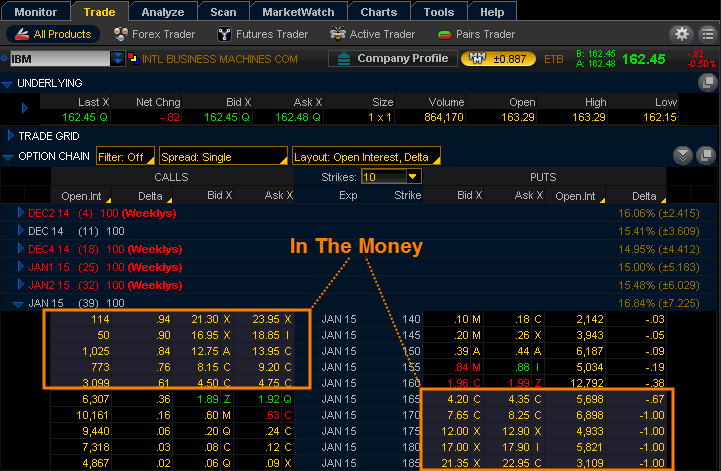Option contracts are often described as being ITM, ATM, or OTM. On this page, we’ll discuss in-the-money (ITM) options.
An ITM option simply has some intrinsic value, which is to say that if the contract expired now, it would still have some value. All options prior to expiration will have some extrinsic value (time value), but only options which have intrinsic value are ITM.
For example, consider the following:
In The Money Call Option: when the strike price is below the current stock price.
In The Money Put Option: when the strike price is above the current stock price.
Intrinsic Value
An option’s intrinsic value is the amount by which the strike price of the option is ITM. The intrinsic value is also the minimum amount that the option should be sold for.
The intrinsic value portion of an option’s premium does not decay or erode with time, but is dictated solely by the price of the underlying instrument (shares of stock). By expiration, any option is only worth its intrinsic value, as there is no time remaining (extrinsic value) for price to make a move into or out of the money.
Deep ITM
An option is considered deep in the money when the option is made up almost entirely of intrinsic value. For example, deep ITM calls are strike prices which are well below current prices, and deep ITM puts are strikes which are well above current prices.
The deeper an option goes ITM, the less time value it will have and the more intrinsic value it will have. Very deep ITM options will behave much closer to the underlying asset, and will reach a delta of 1.00 (deep ITM calls) or -1.00 (deep ITM puts).
Here’s an example of how the TOS platform shades the option chain to reflect contracts which are ITM:
Return to the main options glossary page to learn more terms.

